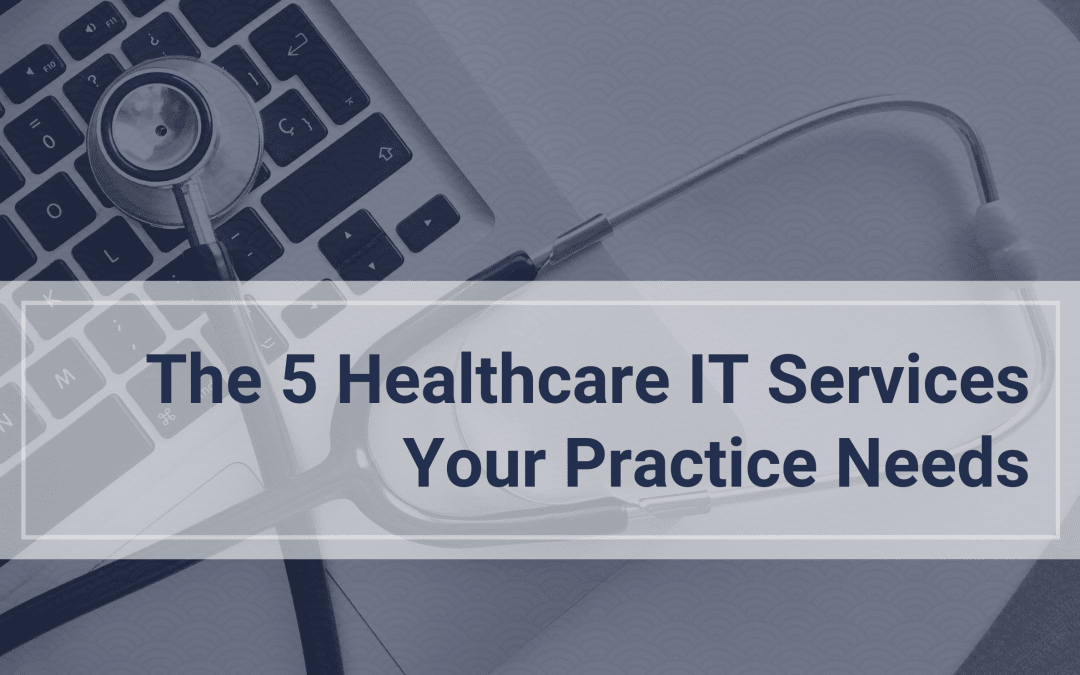Healthcare IT services have something of a unique position. Many existing healthcare practices were established in a time before IT was an integral part of information management. So, there are a substantial number of independent practices (specialists, GPs, medical centres etc) that are still busily operating. But they may not necessarily have the IT infrastructure or services they really need.
As a result however, this leaves many healthcare practices with some serious vulnerabilities. With growing rates of malware attacks, ransomware, and phishing, these these healthcare services are at risk of suffering severe data breaches. And that doesn’t even touch on how they may be failing to meet industry compliance standards, which comes with some hefty fines.
So, having said that, there are some seriously critical elements of healthcare IT services that every healthcare practice should take care to address. Of course, healthcare providers need to take great care with patient confidentiality and protecting sensitive information. But that aside, failing to comply with privacy legislation could leave your business on the hook for over $2 million.
What IT Services Do Healthcare Practices Need?
Firstly, it may seem that as a healthcare practice, IT services are not a high priority. You’re already focused on delivering high-quality care to your patients! And IT services may seem like a superfluous addition to your busy practice. But in terms of healthcare, IT services perform a lot more functions than you would initially think. Most importantly, the right IT services and infrastructure will support you to deliver the best care and experience possible to your patients and customers.
So, at this point maybe you’re thinking that your current setup is probably fine. You only need the bare-bones of IT services in your healthcare practice. But rest assured, if your business has any need of the following, then you’re in need of more than the bare-bones of IT services:
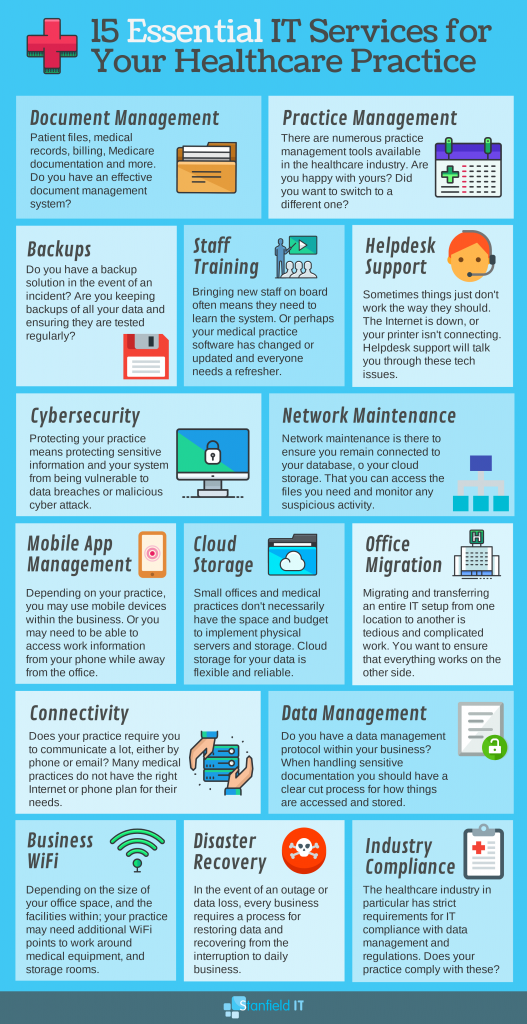
Hopefully this is starting to paint a clearer picture of what sort of healthcare IT services you may not have considered previously. These IT services fall within the scope of fairly basic IT needs that most businesses should absolutely utilise. Having the right IT services and support within your healthcare practice means your office is operating on prime efficiency. As a result, you get to focus more on your work and your patients. Your team is happier. From nursing staff to your receptionists or your business partner, they are no longer hindered by slow or inefficient systems.
The 5 Most Important IT Services
What we define as the most important IT services will inevitable vary depending on the nature of your business and the industry. The infographic above outlines fifteen fairly basic IT services that nearly every healthcare practice would benefit from. If you haven’t already implemented these, take the time to read through and apply what you can to your business.
However, there are a few particularly important IT services that every healthcare practice should investigate and seriously consider.
1. Meeting Industry Standards
If you’re in the healthcare industry, then you already know this. But there are a lot of rules and regulations about nearly every aspect of operating as a healthcare provider. From patient management to the correct storage of medical supplies, there’s a rule for that. Now these regulations are intertwined with IT services. Mostly due to the way we practice data management and operate business. Many healthcare businesses are digitising their systems, and the way they do business is turning to IT.
Many doctors now let you book appointments online, or with systems like myGov or My Health Record; personal medical information is now available online. Take all of these into account when you consider the role of IT services in the healthcare industry.
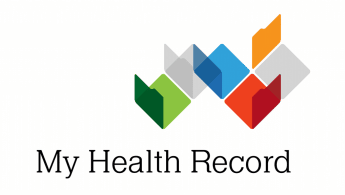
The Royal Australian College of General Practitioners (RACGP) is likely a familiar term if you’re in the healthcare industry. And while your service may not be a general practice, be assured that many of the same compliance requirements apply. The RACGP has developed and published a lot of information regarding information security. This information is designed to help your practice comply with the requirement relating to healthcare information management. They also created a set of standards for computer and information security within general practices and other office-based practices. If you’re looking at this document and backing away in sheer alarm, don’t stress. This is why IT services are crucial. With the right IT services partner, they can assist you to implement these cyber security standards, and ensure you’re giving your practice the best information management possible.
2. Cyber Security
This is the big one. Cyber security is the one absolute IT service that every business should prioritise, regardless of industry! Moreso for healthcare however, beyond the normal reasons that we advise. If you’re in the healthcare industry (as we discussed above) your business is subject to many rules and regulations regarding data management. That includes cyber security measures designed to protect said data.
The information security standards laid out by the RACGP (above) relate primarily your cyber security measures that fulfill these regulations. But there is so much more to cyber security. So much more.
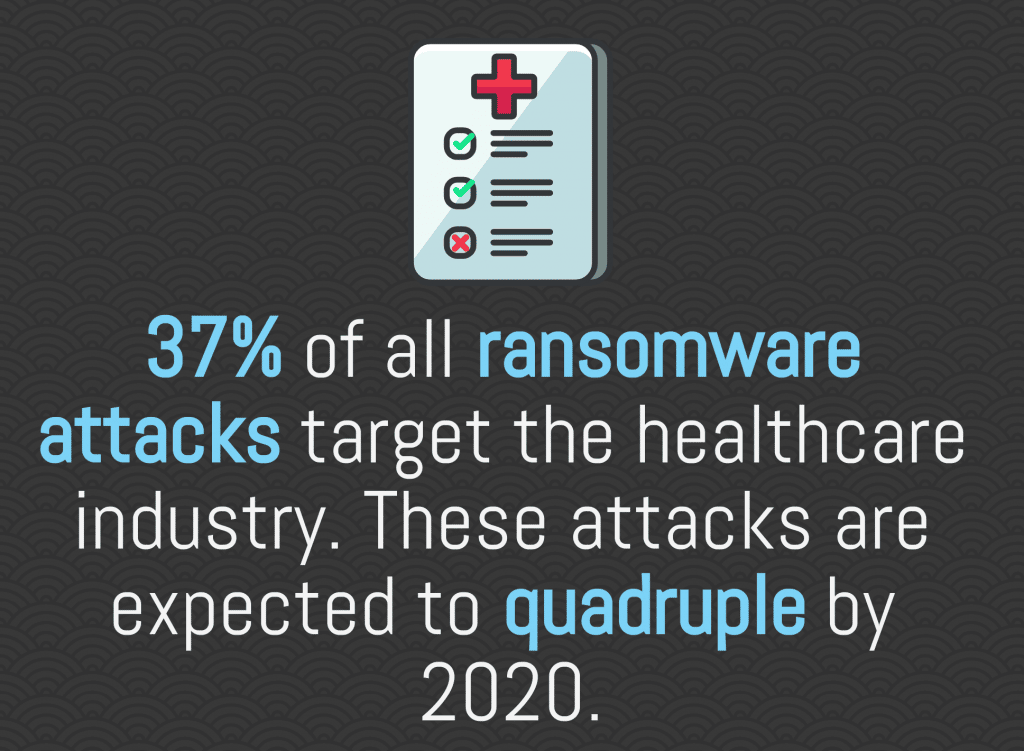
Cyber security is not just important because the industry tells you so. As above, it’s important for every business in every industry. The right cyber security measures have the power to perform three main functions. It can ensure business continuity in the event of an incident. It can prevent (or minimise) financial loss from said incident. And of course, it’s primary function is to protect sensitive information (from customer information to company IP).
As a provider of healthcare, IT services such as cyber security need to be at the top of your list. Engage an IT services provider who can audit, evaluate, plan and implement a cyber security strategy specifically catered to your business. The right strategy should include backups, user management, anti-malware or firewall protection, and a secure storage solution: at a minimum.
3. Digital Transformation
We touched on this during our introduction, but let’s talk about it a bit more. Whether a GP, specialist, medical centre or other healthcare provider, there’s a good chance your business existed at least in the 90s, if not earlier. While we all love to reminisce about the 90s, it’s a fact that technology was not quite so central to our lives as it is now. Whether that’s a good thing or not is an argument for another day.
However, this leaves many healthcare practices in a situation where the business is a well-established, well-oiled machine that’s been operating as is for thirty-odd years. Only everything’s being done manually. And the IT aspects of the business are well behind what they should be. It’s a harsh transition for many businesses to make. A digital transformation in many ways will look and feel like a complete overhaul to the business, which can be time-consuming, and expensive. Not to mention that when you’ve been doing things a certain way forever, it can absolutely be hard to change your methodology.
But in terms of healthcare IT services, it’s important to think about digital transformation as a tool to upgrade your business. It’s not a trendy nice-to-have phase that will pass. Digital transformation is about bringing security and efficiency to your practice. It can be converting manual filing (time-consuming, subject to being misplaced, difficult to secure) into digital cloud storage, management and backup (quick, effective, secure).
Upgrade your network and workstations with user management so each staff member has appropriate access and doesn’t have to struggle with sluggish connections. It can be streamlining processes and practice management software and scheduling data backups. Digital transformation is hugely essential in the world of healthcare IT services.
4. Staff Support
Regardless of what type of practice you have, you have staff working with and for you. It’s so important for your healthcare practice to have access to to this side of IT services. IT services are not just about us doing IT stuff for you. It’s also about us (or your chosen IT partner) helping your team do things themselves.
Helpdesk IT support is an important part of healthcare IT services. We’ve witnessed occasions where the receptionist is unable to process billing, or appointments due to having insufficient IT support available. This brings everything at the practice grinding to a painful halt. Frustrated clients means frustrated staff and everyone ends up with a sour taste in their mouth.
Helpdesk support in the healthcare industry means if your practice is suddenly facing an inability to process patients, you can get instant support over the phone with an effective and competent technician. Often dealing with manufacturer’s customer support means dealing with long wait times on the phone or slow turn-around to your support requests. This is why your IT services should include someone who can provide support and training to your team as required.
5. Legislative Compliance
That sounds boring and/or threatening, but in reality, it’s neither. It’s simply about ensuring that your healthcare practice is complying with current Australian (and international) legislation regarding security and information management. With regards to Australian compliance, you will almost certainly require hired IT services to ensure that you’re operating within the realm of the Privacy Act.
Healthcare services in particular are strictly subject to these regulations due to the sensitive nature of information you’re likely to handle. Your IT services come in with regards to how you collect patient information, how you store patient information and how users access this information. Failing to comply with the standards laid out by the Privacy Act could turn out to be a very expensive mistake.
Furthermore, the new(ish) Notifiable Data Breaches Scheme falls under the umbrella of the Privacy Act. This legislation is strictly in relation to data breaches and the responsibility of an eligible business to report these breaches.
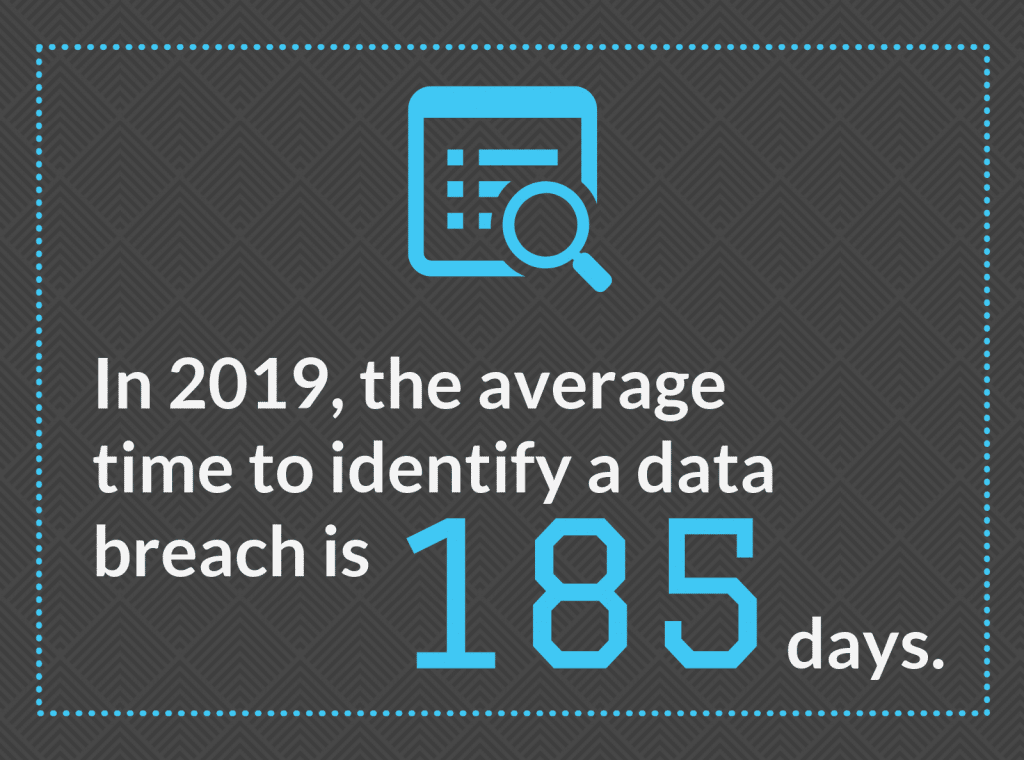
Where do IT services fit into this equation? Basically, it takes businesses an average of 185 to even realise they’ve had a data breach. Much less investigate, contain and address the data breach. Your chosen healthcare IT services can mitigate this extreme number by implementing things like network monitoring and firewalls. These IT tools give you a far better chance of identifying a breach at the time they are occurring so you’re better equipped to shut it down, and report the breach as per the NDBS requirements.
Healthcare IT Services Summary
Wherever you’re at in terms of your healthcare business, it’s important to consider the role of IT services. Your IT services encompass a variety of roles, from preserving the very continuity, security and livelihood of your business. Or simply making your life easier by streamlining processes and creating greater efficiencies in day-to-day processes.
Bring your practice in line with modern businesses, and maximise your effectiveness as a healthcare provider. However you go though, take care to choose the right IT partner for your business to ensure that your IT services complement your needs as a healthcare practice. If you have any questions, feel free to chat with our team at Stanfield IT for more information on what healthcare IT services you could use, and how to go about getting started.
